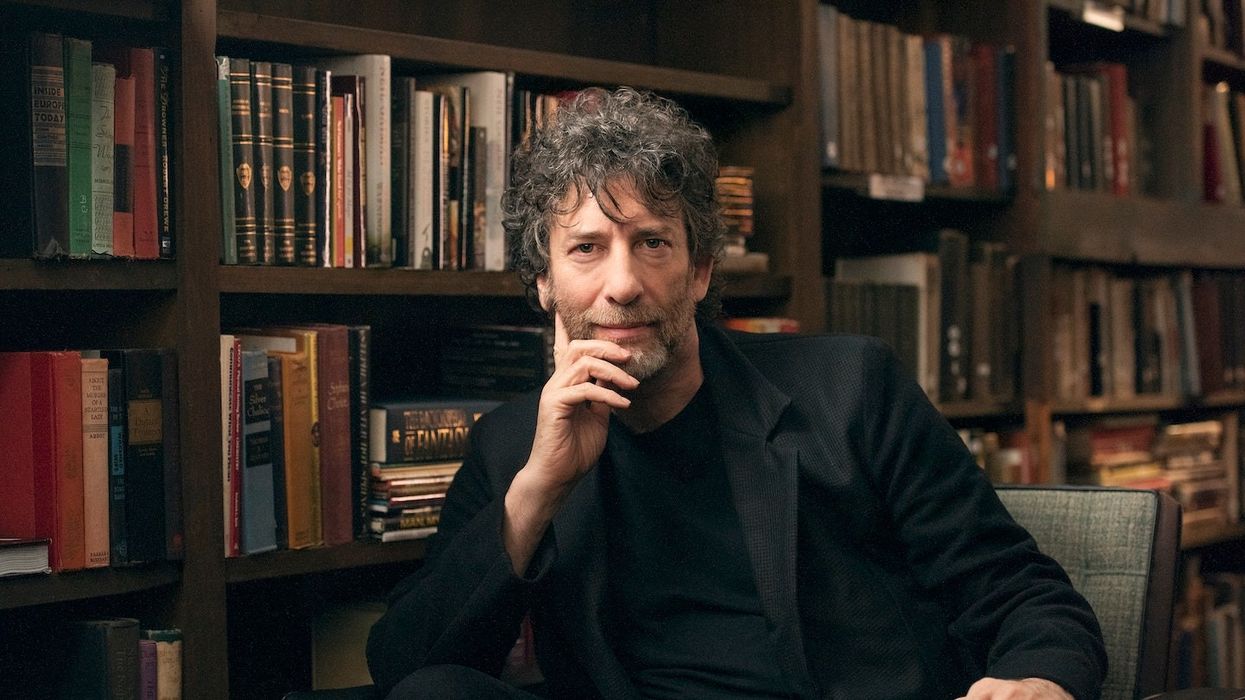That means before you send your script out to production companies, prospective agents, and contests, you should copyright your screenplay.
What Is A Copyright?
A copyright is a legal document that protects your proprietary ideas, like screenplays, from being plagiarised or stolen.
But here's the catch: you cannot copyright an idea.
What Does Copyrighting a Script Protect?
The law says a person can't copyright an idea or thought. So if you're out pitching your perfect idea about time travel and someone overhears you at Nate and Al's, they can totally steal your idea and write it themselves.
But don't get all whispery in public.
Be confident in your pitches and in your ability to execute them better than anyone possibly overhearing you while eating a pastrami sandwich.
Just keep in mind how much time and effort it takes to write a good script. The reality is, if the guy at the next booth in the deli thinks the idea is that good that he steals it, writes it himself, and the movie gets made then your ideas are amazing and you will have more.
Just worry about protecting your written ideas.
Why You Should Copyright Your Screenplay
You want a public record of your script existing so you can protect yourself if you're ever in court. This probably won't happen.
But it's the only reason to copyright your script.
Think of it like insurance. You pay for it constantly but hope you never need it.
That said, there is need for all this documentation down the line if your movie is finished, and sold to distribution.
A written treatment or outline of a fully-developed story should qualify for copyright protection. And so do completed scripts for both pilots and features.
One cool thing about the law is that it states copyright is automatically given to "original works of authorship that are fixed in a tangible form of expression." So if you type it, it's copyrighted automatically. But you still need to prove when you typed the document, so sending it into the copyright office matters too.
The average processing time for all claims is 2.1 months. You can also find lots of detailed information about copyright registration on their website and in their FY 2023 annual report.
You can even register it with the WGA to create a paper trail of when you came up with the idea.
How to Register Your Screenplay With The WGA
The WGA is all about protecting writers. Whether it's showing you to turn down free work or giving you a space to register your script, they have you covered.
From the WGA:
"Registering your work with the WGAW Registry documents the claim of authorship of a written work and does NOT take the place of registering with the Library of Congress, U.S. Copyright Office which primarily documents the ownership or rights of written work. While both create legal evidence that can be used in court, we recommend contacting the Library of Congress directly with any questions regarding COPYRIGHT procedures or practices.
When you register your script prior to submitting it to contests, agents, managers, or producers, you document your authorship on a given date should there be unauthorized usage.
Registration provides a dated record of the writer's claim to authorship of literary material. The WGAW Registry may produce the material as evidence if legal action is initiated."
How to Copyright Your Screenplay in The United States
To copyright your screenplay, login to the US Copyright office and complete their application. They have an entire online area for scripts and screenplays.
There is going to be a fee, but good news, it's cheaper online. Online can cost about $35-$55 but if you send in a paper application it's $85.
Regardless of how you pay, you need to then submit your screenplay. To do this you need to decide whether or not your script is “published” or “unpublished.” Most people who want to copyright a screenplay have an “unpublished” script. The script is “published” if you have offered copies of it for sale or rent.
If you file your registration online, you can upload a copy of your unpublished script. If you are registering by mail or if your script has been published, you have to send in paper copies.
Eventually, you'll get an email confirmation that your script has been copyrighted.
Summing Up How To Copyright Your Screenplay
Now you know how to protect your ideas by copyrighting your screenplays with the US Copyright Office or registering your screenplays with the WGA.
If you're excited to get writing, check out our tips for Staffing Season or our four steps to becoming a professional screenwriter.
Remember, your brain is the key to all your ideas. It's your money-maker. So protect your ideas at all costs. And wear a helmet when you ride a bike, or scooter, just because that will also help protect your ideas.
Don't worry too much about it though. Just focus on writing your best screenplay. Then have the copyright office have your back.
Now get writing!












